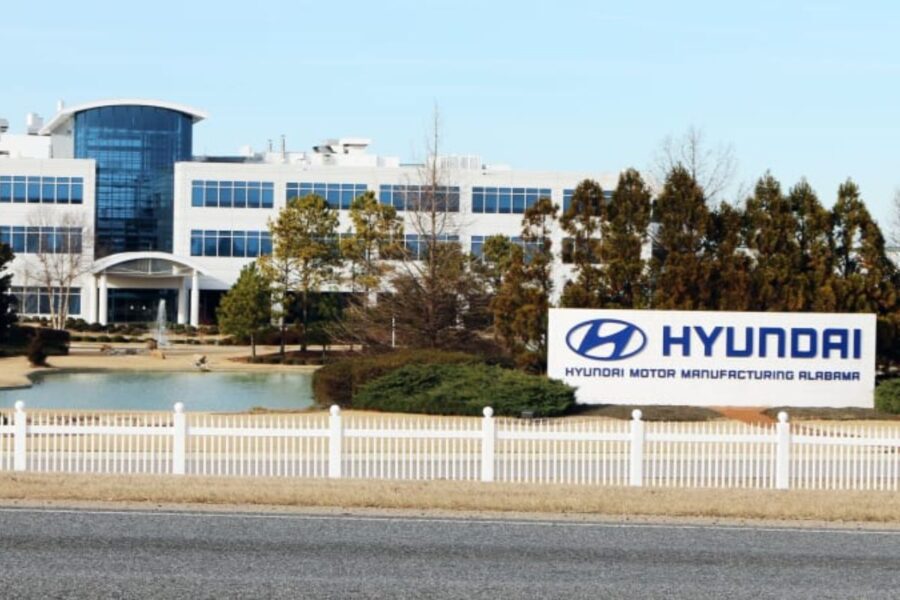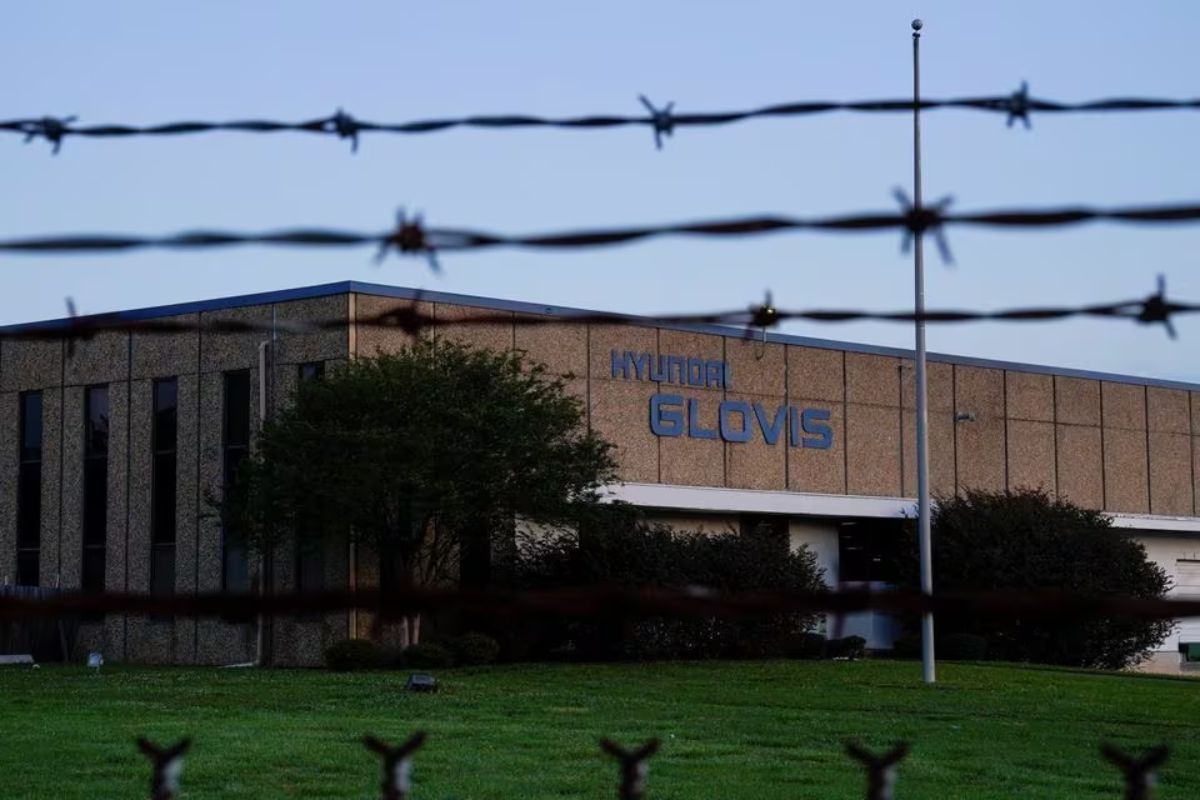UAW Reports 30 Percent or More Workers: The UAW has reported a significant development at the Hyundai plant, with 30 percent or more workers reportedly signing union authorization cards. This latest development is part of the UAW’s ongoing drive for unionization in the automotive industry.
As Hyundai’s response and the UAW’s nationwide effort unfold, the threshold required for official union representation and the organizing momentum will be closely monitored. The response from other non-union automakers and potential presidential support further adds to the complexity and significance of this issue.
To fully understand the context and implications of this development, it is essential to delve into the historical context and the shifting landscape within the automotive industry.
Key Takeaways
- Over 30% of workers at Hyundai Motor Manufacturing Alabama are interested in joining the UAW, indicating a growing support and interest in union representation among workers.
- The UAW aims to provide a collective voice for workers in the non-union auto sector and unionize the entire non-union auto sector in the country, seeking fair wages, safe working conditions, and job security.
- Hyundai emphasizes team members’ autonomy in deciding on union representation and is willing to engage in open and constructive dialogue with the UAW, closely monitoring the unionization drive and its impact on the workforce.
- Non-union automakers, such as Volkswagen and Mercedes-Benz, have responded to the UAW’s efforts by increasing pay and benefits for U.S. factory workers, recognizing the potential impact of unionization on employee satisfaction and productivity.
UAW’s Drive for Unionization
The United Auto Workers (UAW) has undertaken a determined effort to drive unionization in the non-union auto sector in the U.S. A recent report revealed that over 30% of workers at Hyundai Motor’s Alabama plant have expressed interest in joining the union. This initiative is part of the UAW’s broader strategy, launched in November, to publicly organize the entire non-union auto sector in the country.
The UAW aims to provide a collective voice for workers in this sector, ensuring fair wages, safe working conditions, and job security. By organizing workers at Hyundai Motor’s Alabama plant, the UAW is making significant progress towards their goal of unionizing the non-union auto sector. This progress demonstrates the growing support and interest in union representation among workers in this industry.
Hyundai’s Response and the UAW’s Nationwide Effort
With the UAW’s nationwide effort to unionize the non-union auto sector gaining traction, Hyundai’s response to the unionization drive has come into focus. Here are four key points to consider:
- Commitment to Autonomy:
Hyundai has emphasized its commitment to its team members’ autonomy in deciding on union representation. The company wants to ensure that its employees have the freedom to make their own choices without any undue influence.
- Monitoring the Situation:
Hyundai is closely monitoring the unionization drive and its impact on its workforce. The company is keen on understanding the concerns and preferences of its employees and is taking steps to address them appropriately.
- Open Dialogue:
Hyundai has expressed its willingness to engage in open and constructive dialogue with the UAW and its employees. The company believes that effective communication is essential in building a strong and harmonious work environment.
- Future Actions:
As the UAW’s efforts continue, Hyundai will closely evaluate the situation and take necessary actions to support the best interests of its employees and the company as a whole. The company remains committed to maintaining a positive and productive work environment.

ALSO READ: Gov Ivey Dollar 40 Million Investment in Road and Bridge Projects
Thresholds and Organizing Momentum
The UAW’s organizing momentum is marked by specific thresholds that determine the progress and public visibility of the unionization drive at nonunion plants.
One such threshold is when 30% of workers at a nonunion plant express interest in joining the union, which triggers public acknowledgement.
President Shawn Fain discusses the union’s efforts to expand into diverse sectors beyond automakers.
The UAW has set milestones for their organizing campaign, including rallies at 50% worker support and seeking recognition or a union representation vote at 70%.
To achieve these milestones, an organizing committee is put in place.
These thresholds serve as markers of progress and help gauge the success of the UAW’s organizing momentum in nonunion plants.
Response from Non-Union Automakers and Presidential Support
Non-union automakers have responded to the UAW’s organizing efforts by increasing pay for U.S. factory workers. This response signifies a recognition of the potential impact of unionization on employee satisfaction and productivity.
The specific cases of a Volkswagen plant in Chattanooga, Tennessee, and a Mercedes-Benz plant in Vance, Alabama, highlight this trend. These companies have taken steps to improve wages and benefits in an attempt to dissuade workers from seeking union representation.
Furthermore, a recent event in the Detroit area featuring UAW President Shawn Fain and President Joe Biden showcases strong support from the current administration for the union’s organizing efforts. This presidential backing could further embolden the UAW and encourage more non-union automakers to respond to organizing efforts with increased pay and better working conditions.
Historical Context and Shifting Landscape
In light of the historical challenges faced by the UAW in organizing Nissan plants in Mississippi and Tennessee, the current momentum in favor of unionization signifies a potential shift in the traditionally non-unionized sector of the U.S. automotive industry.
While the UAW has encountered difficulties in the past, recent efforts at non-union Volkswagen and Mercedes-Benz plants have shown progress in unionizing workers. This indicates a changing landscape in the industry, where workers are increasingly expressing their support for union representation. The table below provides a visual representation of the shifting dynamics in the U.S. automotive industry:
| Historical Challenges | Current Momentum |
|---|---|
| Nissan plants in Mississippi and Tennessee | Non-union Volkswagen and Mercedes-Benz plants |
| Difficulties in organizing | Progress in unionizing workers |
| Traditionally non-unionized sector | Potential shift in the industry |
| Resistance from automakers | Increasing worker support for union representation |
These developments highlight the potential for a transformation in the non-unionized sector of the Alabama automotive industry, as more workers express their desire for union representation and collective bargaining power.

Conclusion Of UAW Reports 30 Percent or More Workers
In summary, the UAW’s drive for unionization at the Hyundai plant has seen over 30 percent of workers signing union cards. This has sparked a nationwide effort by the United Auto Workers to organize workers at other non-union automakers.
The response from non-union automakers and presidential support has added to the organizing momentum. This development takes place within a historical context of shifting landscape in the automotive industry.
Our Reader’s Queries
Who is included in United Auto Workers?
What is the purpose of the UAW?
The United Auto Workers (UAW), officially known as the International Union, United Automobile, Aerospace, and Agricultural Implement Workers of America, is a labor union in the United States (including Puerto Rico) and southern Ontario, Canada, representing a diverse range of workers.
What is the structure of the UAW?
The UAW is segmented into nine geographic regions, each overseen by a Regional Director elected at the UAW Constitutional Convention by delegates from the respective represented region.
What auto manufacturers are in Alabama?
Alabama has emerged as a prominent global hub for automotive manufacturing. The state hosts assembly plants for major brands such as Mercedes-Benz, Honda, Hyundai, Mazda, and Toyota, including an engine assembly plant for Toyota. Additionally, there is a thriving network of automotive suppliers catering to OEMs in Alabama and nearby regions.

